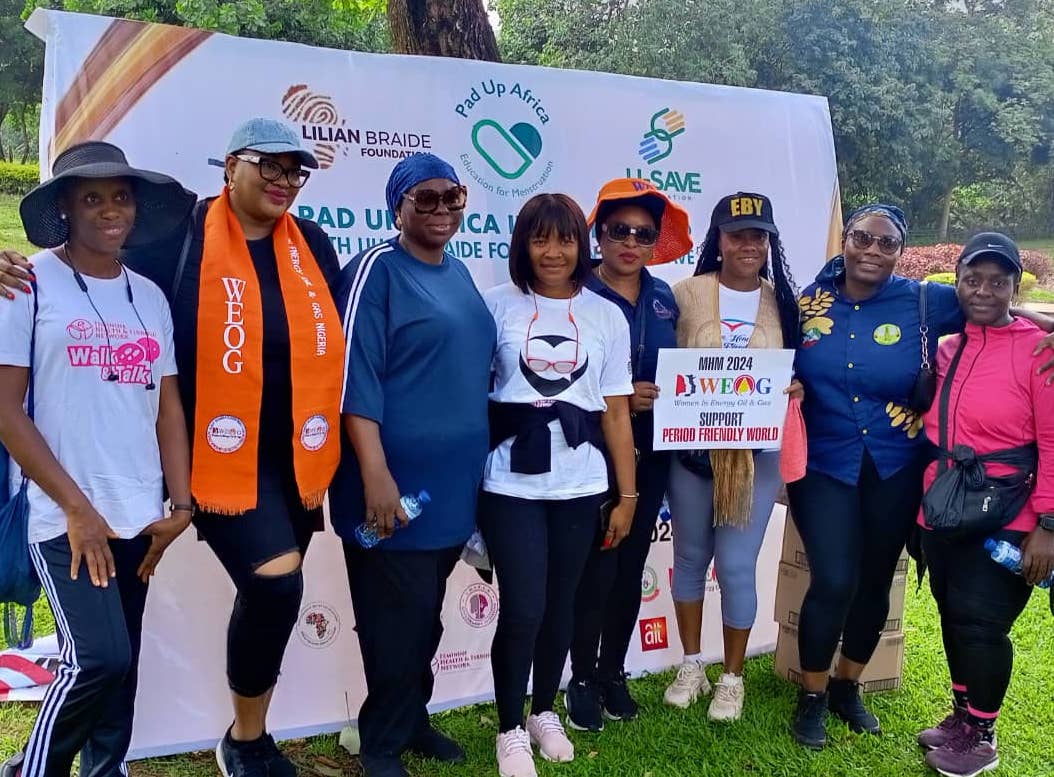
A stakeholder of non-governmental organizations in Nigeria has called on the Federal Government to ensure access to menstrual health products for school girls, promoting menstrual health and hygiene.
[ad]
They argued that sustainable measures are needed for the continuous supply of sanitary towels, particularly in public schools, to encourage school attendance by girls.
The call was made during a campaign tagged ‘A Walk for a Period-Friendly Nigeria’ organized by the PAD Up Africa Foundation, Shield Girls2Women Initiative, U-Save, Malula, FMWA, Feminine Health, and Fibroid Network.
Speaking during the campaign in Abuja, Chief Executive Officer of Pad Up Africa, Ashley Lori, emphasized the importance of sensitization to debunk myths surrounding menstrual stigmatization and the need for more pad banks in schools.
[ad]
The event featured a walk from Millennium Park to the Federal Secretariat, where women and school girls from various schools displayed placards advocating for menstrual hygiene and an end to period poverty in schools.
Lori noted that the campaign aims to raise awareness and promote menstrual health and hygiene among school girls, ensuring they have access to affordable and sustainable menstrual health products.
Also speaking, programs director, Shield Girls2Women Initiative, Omede Ojonugwa, said: “The essence of the walk is to sensitize the public and raise a campaign with the help from well meaning Nigerians, nongovernmental organizations, the government come together to enable the girl child, the women to have a friendly period society for us.
[ad]
“The government came together to enable the girl child, the women have a friendly period and a friendly society for us, because if you notice the society has a large percentage of women and if we support them, give them an enabling environment.
“Surely when it comes to period held, menstrual health, menstrual hygiene, it goes along with to help us so this walk is just to sensitize the public give them the awareness that they need in celebration of the International, the International they set aside for menstrual hygiene.”
In her remarks, Assistant Director at the Federal Ministry of Women Affairs, Mrs Mariam Shaibu, said that the government has since introduced several measures in order to curb challenges in the society.
[ad]
She said: “Governments at all levels are taking significant steps to address menstruation. They are actively reviewing policies, conducting sensitization campaigns, and engaging in advocacy efforts to raise awareness about menstrual health and hygiene. These initiatives aim to promote a better understanding of menstruation and address the challenges associated with it.”
An advocate for the Feminine Health and Fibroid Network, Salako Zuliat, called on the government to invest in empowering girls through sanitary pad initiatives, promoting menstrual health and hygiene.
[ad]
She said: “So if we have the government investing in projects like this to provide sanitary pads for these young women, it will go a long way to affect their quality of life. They wouldn’t have to seek back home anytime they are menstruating because they don’t have sanitary hygiene products.
“There will be no prevalence of diseases and infections in these young women because they have to go through unhygienic ways to manage their menstrual period.”
[ad]



